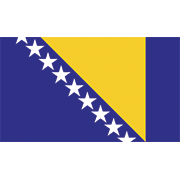Fiscal subject related
The Federation of Bosnia and Herzegovina has recently introduced a Draft law aimed at introducing mandatory e-invoicing and real-time reporting of sales data. The scope of the Draft law includes various transactions such as the sale of goods and services, property transfers, and many other specified activities with just a few exemptions.
An e-invoice, as defined by the Draft law, is an invoice issued in a structured electronic format that allows for automatic and electronic processing, compliant with the European Standard. Taxpayers will be required to use the Central Platform for Fiscalisation (CPF), a centralized system that will completely be managed by the Tax Authorities. This platform is planned to facilitate the issuance of e-invoices, real-time reporting, data exchange, invoice review, etc. This platform is also envisioned as the place where fiscal receipts from new fiscal devices will be reported and monitored.
The mentioned Draft law (Draft Law on Fiscalization of Financial Transactions), holds future requirements for most taxpayers and a wide scope of businesses in FBIH, including B2G, B2B, and B2C transactions. Upon its final promulgation into official law, it will be the primary legal text governing main requirements for all companies having sales transactions in a widened scope.
E.g. for B2C transactions, the Draft law proposes the use of approved Electronic Fiscal Systems (EFS), which include electronic transaction recording tools (ESET) and fiscal devices. These systems are expected to be designed to issue and report fiscal receipt data to the Tax Authorities, ensuring fast and detailed information for compliance with these rules. The EFS can be developed in various forms but all of those will be required to meet particular technical requirements that are yet to be created.
Penalties for non-compliance are outlined in the draft law, emphasizing the importance of adhering to the new e-invoicing and reporting requirements. The implementation timelines and relevant bylaws are unknown so far (the draft itself could have certain details amended also and it is still not transmitted into adopted final law).
Other news from Federation of Bosnia and Herzegovina
New event was created: Join our free webinar: Fiscalization Reform in the Federation of BiH
 Federation of Bosnia and Herzegovina
Author: Vukašin Santo
Federation of Bosnia and Herzegovina
Author: Vukašin Santo
Significant changes are expected in the fiscalization framework in the Federation of Bosnia and Herzegovina. This webinar provides a clear and structured overview of the new Draft Law on Fiscalization, focusing on how the system is changing, what new obligations are being introduced, and how businesses should prepare for the upcoming reform. 📅 January 29, 3 PM CET What we’ll cover Welc... Read more



New document was uploaded: EV-chargers from the Fiscalization Perspective in the Federation of Bosnia and Herzegovina
 Federation of Bosnia and Herzegovina
Author: Tara Nedeljković
Federation of Bosnia and Herzegovina
Author: Tara Nedeljković
The purpose of this document is to explain rules regarding treatment of EV-Chargers for electric vehicles in the Federation of Bosnia and Herzegovina from fiscalization perspective. We explained whether they are subjects of fiscalization or not, whether there are some special rules and regulations, or if there are some special rules Read more
Subscribe to get access to the latest news, documents, webinars and educations.
Already subscriber? Login


Data Privacy Laws in Bosnia and Herzegovina: What Retailers Need to Know?
 Federation of Bosnia and Herzegovina
Author: Tara Nedeljković
Federation of Bosnia and Herzegovina
Author: Tara Nedeljković
Bosnia and Herzegovina’s data protection framework strictly limits the collection and processing of personal data such as the Unique Citizen Number (JMB) to legally authorized controllers, with rules applying nationwide across both entities. For retailers, this means fiscal and POS systems must not collect or process JMB or other personal data without a clear legal basis, as non-compliance can lea... Read more



Parliament in the Federation of BiH to Review Proposal of Law on Fiscalization By End of December
 Federation of Bosnia and Herzegovina
Author: Tara Nedeljković
Federation of Bosnia and Herzegovina
Author: Tara Nedeljković
The Federation of Bosnia and Herzegovina is nearing final parliamentary review of its Draft Law on Fiscalization of Transactions, a major reform that replaces hardware-based cash registers with a digital system centered on e-invoices, fiscal receipts, and real-time reporting to the Tax Administration. Read more
Subscribe to get access to the latest news, documents, webinars and educations.
Already subscriber? Login


New Consumer Rules and the Future of Non-Working Sundays in Federation of Bosnia and Herzegovina
 Federation of Bosnia and Herzegovina
Author: Tara Nedeljković
Federation of Bosnia and Herzegovina
Author: Tara Nedeljković
The Federation of Bosnia and Herzegovina is implementing a consumer protection law ensuring price transparency, digital price matching, and access to detailed product information via codes. It also allows online complaints and maintains non-working Sundays, promoting fairness for consumers and supporting community businesses. The Federation of Bosnia and Herzegovina is introducing a new consumer p... Read more



The Proposal Law on Fiscalization of Transactions in the Federation of BiH was presented by the Government
 Federation of Bosnia and Herzegovina
Author: Tara Nedeljković
Federation of Bosnia and Herzegovina
Author: Tara Nedeljković
Federal Ministry of Finance presented the Proposal for the Law on Fiscalization of Transactions in the Federation of BiH. Read more
Subscribe to get access to the latest news, documents, webinars and educations.
Already subscriber? Login


Bosnia and Herzegovina continues with the Preparation of Digital Transformation with the future introduction of E-Invoicing
 Federation of Bosnia and Herzegovina
Author: Tara Nedeljković
Federation of Bosnia and Herzegovina
Author: Tara Nedeljković
Bosnia and Herzegovina is modernizing its business landscape by introducing e-invoicing as part of a digital ecosystem that integrates tools like electronic signatures and certification authorities. Read more
Subscribe to get access to the latest news, documents, webinars and educations.
Already subscriber? Login

